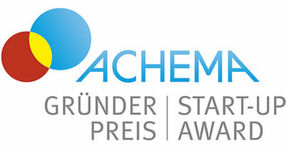Seattle Genetics Announces Antibody-Drug Conjugate Agreement with Bayer Pharmaceuticals
Advertisement
Bothell. Seattle Genetics, Inc. announced that Bayer Pharmaceuticals Corporation has licensed Seattle Genetics' proprietary antibody-drug conjugate (ADC) technology. The license provides Bayer with rights to utilize Seattle Genetics' ADC technology to link cell-killing drugs to antibodies against a specific tumor target selected by Bayer.
Bayer has paid Seattle Genetics a $2.0 million fee and, under the terms of the multi-year license agreement, has agreed to make progress-dependent milestone payments and pay royalties on net sales of resulting ADC products. Bayer is responsible for research, product development, manufacturing and commercialization of all products under the collaboration. Seattle Genetics will receive material supply and annual maintenance fees as well as research support payments for any assistance provided to Bayer in developing ADC products.
"This collaboration with Bayer is a reflection of the considerable scientific advances we have made with our ADC technology," stated Clay B. Siegall, Ph.D., President and Chief Executive Officer of Seattle Genetics. "We employ ADC technology in our internal drug development programs as well as license it to partners with product development capabilities, providing near-term revenue and positioning ourselves to earn future milestones and royalties."
ADCs utilize the targeting ability of monoclonal antibodies to deliver potent, cell-killing payloads to specific cells. Seattle Genetics has developed improved ADC technology employing synthetic, highly potent drugs that can be attached to antibodies through proprietary linker systems. The linkers are stable in the bloodstream and release the drug payload once inside target cells. ADCs can increase the therapeutic potential of the many antibodies with targeting ability but limited or no inherent cell-killing activity.
Other news from the department business & finance
Most read news
More news from our other portals
See the theme worlds for related content
Topic world Antibodies
Antibodies are specialized molecules of our immune system that can specifically recognize and neutralize pathogens or foreign substances. Antibody research in biotech and pharma has recognized this natural defense potential and is working intensively to make it therapeutically useful. From monoclonal antibodies used against cancer or autoimmune diseases to antibody-drug conjugates that specifically transport drugs to disease cells - the possibilities are enormous

Topic world Antibodies
Antibodies are specialized molecules of our immune system that can specifically recognize and neutralize pathogens or foreign substances. Antibody research in biotech and pharma has recognized this natural defense potential and is working intensively to make it therapeutically useful. From monoclonal antibodies used against cancer or autoimmune diseases to antibody-drug conjugates that specifically transport drugs to disease cells - the possibilities are enormous

























































